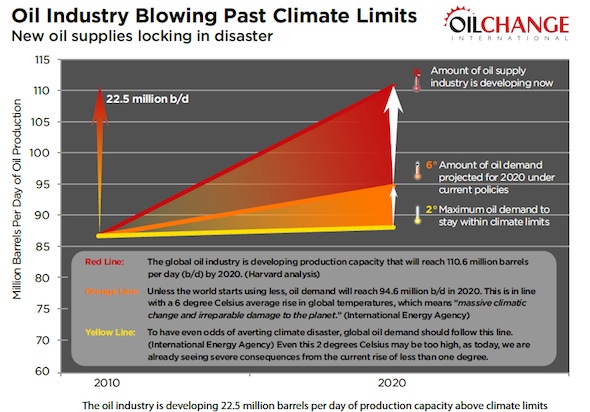Tullow’s tax disclosures torpedo Big Oil’s campaign for secrecy
From Global Witness:
March 24, 2014
The UK company Tullow Oil today became the world’s first extractive firm to publish details of its revenue payments to governments broken down by each project the company operates worldwide. The disclosures, released today in Tullow’s annual report, show the taxes, royalties, licence fees and other public revenues generated by the company’s operations across 21 countries – 14 of which are in sub-Saharan Africa – for the years 2012 and 2013.
Tullow’s voluntary disclosures are being released in advance of a new EU law, due to come into force in the UK in 2015, that will require EU oil, mining and logging companies to publish their payments to governments on a project-by-project basis. These detailed disclosures will enable citizens in economically poor but resource-rich regions to monitor public revenues worth hundreds of billions of dollars and hold governments to account for how the money is used.
Drilling ourselves to desolation
African oil news today looks pretty much like any other day: a new paper from the European Centre for Development Policy Management warns that Africa must diversify to save itself from the resource curse. Nigeria is losing $1 billion a month to oil theft. The drilling race in East Africa is amping up and more gas is discovered in Mozambique. Meanwhile heavy flooding has wreaked havoc across West Africa, adding to the list of global extreme weather events.
There’s such a disconnect now between oil and weather stories that one could almost conclude that oil drilling and climate change are unrelated. But fossil fuel extraction and consumption have both immediate and long-term impacts on the the environment and those impacts are amplified across Africa. Most African countries are ill-prepared to deal with both oil spills and extreme weather events. And droughts, floods, coastal erosion and rising food prices will hit poor countries the hardest. Despite all this, there are only a few lonely voices calling to “leave oil in the soil.”




